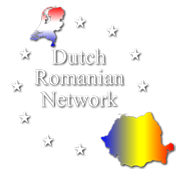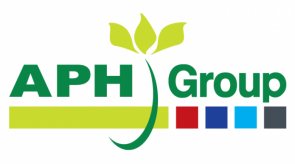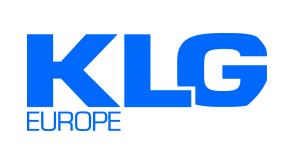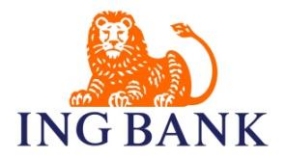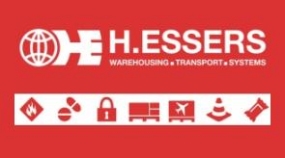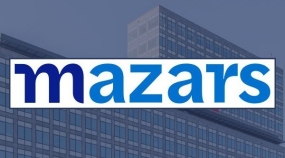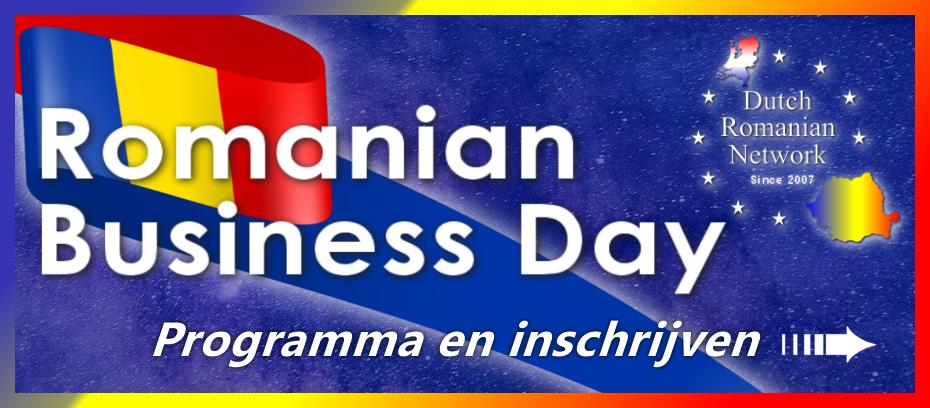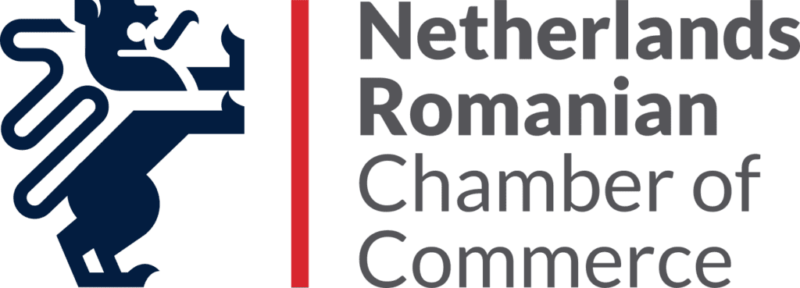Newsletter October-November 2024

Agenda
Romanian Business Day
On Thursday, November 21, the Romanian Business Day will again take place at Slot Loevestein in Poederoijen. We as DRN are proud that we have found a number of leading experts from the Romanian business community, willing to travel to the Netherlands, to share their insights and experience.
- Valentin Tataru, Chief economist of ING Romania, outlines the expected macroeconomic developments. Why is economic growth in Romania stronger than in most other countries in Europe? Is this indeed entirely driven by consumer spending or is there more? And what place will Romania occupy in the European economy in the coming years?
- Gerke Witteveen, CEO of NN Pensii Romania, will comment on the investment climate in Romania. How will the investment climate develop in the coming years? What are wise choices and what above all not to do?
- Radu Hanga, President of the Bucharest Stock Exchange is the third speaker. Eastern European stock exchanges and the Romanian one in particular have shown a positive development in recent years. What are the underlying causes of this. And what are the possible consequences of political developments on the business climate?
- Peter de Boer, Chief Relations Officer of DN-Agrar, takes you through the story of DN-Agrar. From the start of the dairy farm in Romania by his father in 2008, to the listing on the stock exchange in 2021 and to now, where DN-Agrar has now grown into the largest agricultural company in Romania, with both agriculture and milk production.
During the subsequent round tables, you will have the opportunity to interact directly with them for 45 minutes and they will answer your further questions.
There is an opportunity to submit your questions to the experts in advance.
The day will conclude with networking drinks and a tour of nocturnal Slot Loevestein.Register now for this day, it is the perfect opportunity to get first hand insight in the business climate of Romania and meet your (future) relations! Participation for members of the Dutch Romanian Network is free.
For non-members the costs are € 25,- per person excluding VAT.
| November 28 Night of the SME’s – NRCC Bucharest. |
|
The 11th edition of the Night of the SME’s organized by the Netherlands Romanian Chamber of Commerce in Bucharest. An evening aimed at SMEs, combining the useful, interesting speakers, with the pleasant , a culinary dinner. You can register via info@nrcc.ro. |
|
|
| November 24 – December 8 |
| Within this period, Presidential and parliamentary elections will take place in Romania. |
From the network
Te Baerts wins Best Driver of the Year 2024
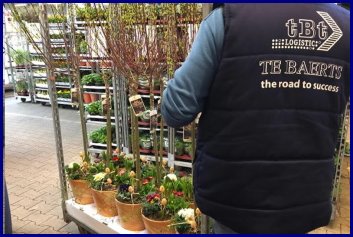 At the Transpreon Summit Gala in Vienna, Petrică Mihalache, driver at Te Baerts, was named Best Driver of the Year 2024. This prestigious European competition, organized by Transpreon, had more than 1,000 nominees, with the eventual winner being Petrică Mihalache. Te Baerts transport, with branches in Venlo, Brașov, and Bucharest, says they are more than proud with the awarding of this prize to their colleague and the recognition of what this award stands for; namely that professional drivers fulfill an essential role in society.
At the Transpreon Summit Gala in Vienna, Petrică Mihalache, driver at Te Baerts, was named Best Driver of the Year 2024. This prestigious European competition, organized by Transpreon, had more than 1,000 nominees, with the eventual winner being Petrică Mihalache. Te Baerts transport, with branches in Venlo, Brașov, and Bucharest, says they are more than proud with the awarding of this prize to their colleague and the recognition of what this award stands for; namely that professional drivers fulfill an essential role in society.
Damen Shipyards Galati is celebrating its 25th anniversary.
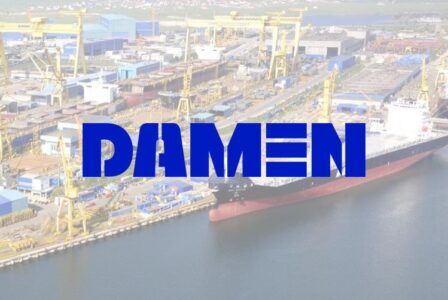 This year Damen is celebrating the 25th anniversary of Damen Shipyards Galati. In these 25 years, Damen Shipyards Galati, as part of the Damen Group, has delivered 450 ships to 70 countries. From tugs to naval vessels rolled off the slipway in the past 25 years. This can rightly be called a milestone.
This year Damen is celebrating the 25th anniversary of Damen Shipyards Galati. In these 25 years, Damen Shipyards Galati, as part of the Damen Group, has delivered 450 ships to 70 countries. From tugs to naval vessels rolled off the slipway in the past 25 years. This can rightly be called a milestone.
Forvis Mazars publishes 2024 version of handbook “Doing Business in Romania”
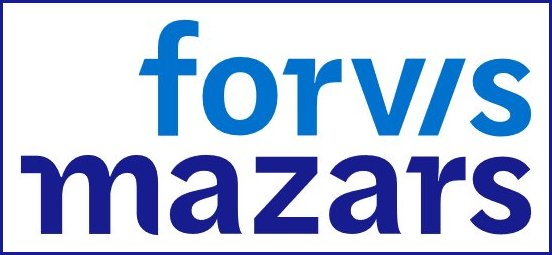
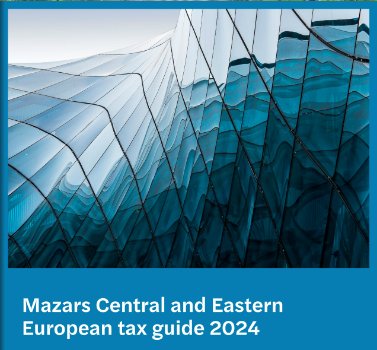 The latest version of the handbook has been updated to include the latest legislative changes, market information and practical information on doing business in Romania. The handbook can be downloaded from the Forvis Mazars Romania website at this link
The latest version of the handbook has been updated to include the latest legislative changes, market information and practical information on doing business in Romania. The handbook can be downloaded from the Forvis Mazars Romania website at this link
Do you have a contribution for the newsletter?
DRN is a network for and by entrepreneurs. If you have news about your company that may be of interest to other members of the network, we would love to hear from you. A simple email with your news to info@dutchromaniannetwork.nl is all it takes. We will then contact you to discuss possible placement of your news.
Economic News
New issue of Tezaur government bonds
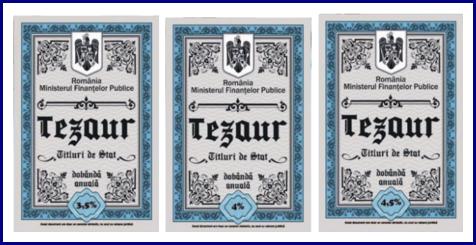 Starting Nov. 4, Romanians can invest in TEZAUR government bonds with maturities of 1, 3 or 5 years, with annual interest rates of 5.95%, 6.70% and 7.10%, respectively, the Ministry of Finance announced. The issue is open only to individuals registered in the SPV, the digital portal of the Romanian Tax Administration. The funds obtained by the Ministry of Finance, as issuer of the bonds, as a result of the issuance of sovereign bonds will be used to finance the budget deficit and refinance public debt. Income obtained from investments in government bonds issued by the Ministry of Finance is not taxable. Interest is paid annually according to the terms stated in the issue prospectus. In addition, government bonds issued under the TEZAUR program are transferable and can be redeemed in advance. In addition, an investor has the freedom to make one or more subscriptions within an issue.
Starting Nov. 4, Romanians can invest in TEZAUR government bonds with maturities of 1, 3 or 5 years, with annual interest rates of 5.95%, 6.70% and 7.10%, respectively, the Ministry of Finance announced. The issue is open only to individuals registered in the SPV, the digital portal of the Romanian Tax Administration. The funds obtained by the Ministry of Finance, as issuer of the bonds, as a result of the issuance of sovereign bonds will be used to finance the budget deficit and refinance public debt. Income obtained from investments in government bonds issued by the Ministry of Finance is not taxable. Interest is paid annually according to the terms stated in the issue prospectus. In addition, government bonds issued under the TEZAUR program are transferable and can be redeemed in advance. In addition, an investor has the freedom to make one or more subscriptions within an issue.
Romanian Macroeconomic Expectations
 For 13 years, the CFA Society Romania, the Association of Investment Professionals in Romania, has conducted a monthly survey of its members on expectations about macro economic developments in Romania. The survey is conducted every last week of the month among its more than 250 affiliated members. The results of the survey give an indication of financial analysts’ expectations about economic developments in Romania for the coming year. The CFA Romania Association’s Macroeconomic Confidence Indicator fell 6.7 points in September, to a value of 40.1 points. This situation was caused by the drop of 7.3 points in the indicator’s anticipation component and by 5.5 points in the current conditions component. The Macroeconomic Confidence Indicator takes values between 0 (lack of confidence) and 100 (full confidence in the Romanian economy) and is calculated on the basis of 6 questions about current conditions (related to the business environment and the labor market) and expectations for the coming year for the business environment, the labor market, salary developments as personal wealth at the macro level. Analysts’ expectations regarding economic growth for the current year have decreased, compared to previous surveys and now stand at 1.7%. For next year, the economy is expected to grow by 1.1%. But some survey participants fear a recession. The projected budget deficit for 2024 remained at the average expected value of 7.3% of GDP. Next year, it is expected to fall to 5.9% of GDP. Public debt, calculated as a percentage of GDP, is expected to rise to 56% over the next 12 months. Inflation
For 13 years, the CFA Society Romania, the Association of Investment Professionals in Romania, has conducted a monthly survey of its members on expectations about macro economic developments in Romania. The survey is conducted every last week of the month among its more than 250 affiliated members. The results of the survey give an indication of financial analysts’ expectations about economic developments in Romania for the coming year. The CFA Romania Association’s Macroeconomic Confidence Indicator fell 6.7 points in September, to a value of 40.1 points. This situation was caused by the drop of 7.3 points in the indicator’s anticipation component and by 5.5 points in the current conditions component. The Macroeconomic Confidence Indicator takes values between 0 (lack of confidence) and 100 (full confidence in the Romanian economy) and is calculated on the basis of 6 questions about current conditions (related to the business environment and the labor market) and expectations for the coming year for the business environment, the labor market, salary developments as personal wealth at the macro level. Analysts’ expectations regarding economic growth for the current year have decreased, compared to previous surveys and now stand at 1.7%. For next year, the economy is expected to grow by 1.1%. But some survey participants fear a recession. The projected budget deficit for 2024 remained at the average expected value of 7.3% of GDP. Next year, it is expected to fall to 5.9% of GDP. Public debt, calculated as a percentage of GDP, is expected to rise to 56% over the next 12 months. Inflation
According to survey respondents, the expected inflation rate for the 12-month period (October 2025) remains relatively constant compared to the previous version and averaged 4.97%. At the same time, about 47% of participants expect a decrease in inflation in the next 12 months, and about 27% expect stability or an increase in this indicator. The exchange rate
As for the EUR/RON exchange rate, about 88% of participants expect a depreciation of the leu in the next 12 months, and the rest a stagnation. Thus, the average value of expectations for the six-month horizon is 5.0407 lei for one euro, while for the 12-month horizon, the average value of the expected exchange rate is 5.0975 lei for one euro.
Agricultural News
Agricultural land price increase in Romania flattens out
Although a decade is behind us where price increases were recorded between 25 and 40%, depending on the region, the prices of a hectare of agricultural land in Romania are still for the most part below the European average of €10,578 per hectare (price level 2022). With the only exception being the Bucharest- Ilfov region.
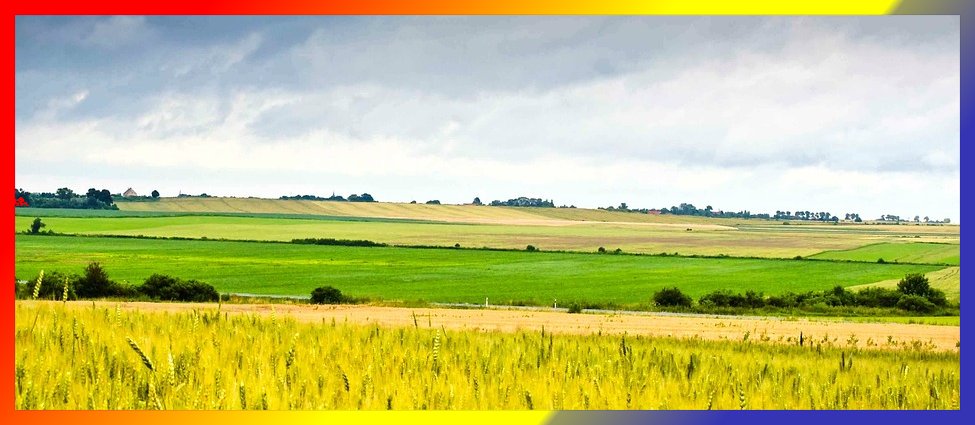
Romania still has large areas of high-quality agricultural land, whose prices are expected to rise at a more moderate pace in the coming years than in recent years. This is according to recent research by Nai appraisers, which published a study on the subject. Bucharest-Ilfov remains the most expensive agricultural region in Romania, with a value of €12,000 per hectare in 2022, an increase of about 40% compared to 2015. This can be explained by its proximity to Romania’s largest city. The West of Romania, where the price reached over €9,000 per hectare, registered an increase of about 30% in recent years, while the Southeast and Southwest reached €8,100 per hectare, an increase of about 35% compared to 2015. North-West (€7,600 /ha) and North-East (€7,000 /ha) recorded more modest increases, of about 25-30% compared to 2015. According to the analysis conducted by NAI Romania & Moldova, the main factors that contributed to the large price increases in recent years are: the interest of foreign and local investors in land intended for high-value crops (wheat, corn, sunflowers), as well as for specialized crops such as vines, fruits and vegetables. The start of agricultural infrastructure projects and irrigation projects, which have made certain areas in the Southeast and Southwest attractive for long-term investment, also contributed to the pressure on prices. As also increased demand for agricultural exports, which increased pressure on land prices in logistically accessible areas, such as the regions in the west of the country and those around Bucharest. Given the climate situation, characterized by the recent dry years, growth could be more moderate than in recent years. At the same time, there are areas where land is offered for €2,000 to €3,000 /ha, where the trading price would normally be around €10,000 /ha. These exceptions are usually caused by the low productivity of the plot in question; in most cases, production is zero and farmers choose not to cultivate the land anymore. There are several provinces where there are such poor areas. Conversely, opportunities for specialized land and strategically positioned plots will keep the market competitive, especially in regions well connected to infrastructure. Also, the development of road infrastructure and new irrigation projects can increase the attractiveness of some regions that until now have been less exploited,” said the NAI Romania report.
Post Craiova
By Han in’t Veld, Netrom

Alexandru Arambasa; High-end hairdresser who commutes between Romania and the Netherlands.
Regular readers of this blog know this by now, I’ve been writing about Romania for many years from the point of view of an entrepreneur operating there, with the aim of making the virtual distance between Romania and the Netherlands a little smaller. Over the years, in Craiova, the city where I live and where NetRom is located, a real Dutch/Belgian ‘community’ has developed, with a kind of permanent core of 4 or 5 couples. Although, community might be a bit heavy handed. Every few months we go out for a bite to eat and drink with each other, and usually have a lot of fun.
 Over 2 years ago, Alexandru Arambasa and his Dutch wife also joined this company. Alex is something of a celebrity hairdresser; there are all kinds of videos circulating about him on the Internet, up to appearances on national TV stations in Romania. Half the time Alex works in his own hair salon in Craiova, and the other half in a high-end barbershop in Amsterdam Oud-Zuid. People who alternate their private and work time between the Netherlands and Romania exist. I’m an example of one myself, and it’s not hard to imagine that Alex and I have a lot to talk about. For this Post Craiova, I choose a slightly different perspective and have a conversation with Alex. He commutes (also) between the two countries and is married to a Dutch woman. Our conversation offers an insight into the views of an expert by experience so. Of course, we also talk about the supposed differences in culture and mentality between the Netherlands and Romania. Alex begins with how he returned to the Netherlands as a Romanian hairdresser. “It seems like the wind has blown Holland my way,” Alex laughs. “Over the years, my connection to the Netherlands has grown stronger and stronger. Professionally, because about five years ago I started working for a large international brand with a Dutch base. And personally, because I am married to a Dutch person. We have a son together and a second child on the way.” When talking about cultural differences and similarities, Alex’s perspective matches mine. Alex: “Those differences are really not that
Over 2 years ago, Alexandru Arambasa and his Dutch wife also joined this company. Alex is something of a celebrity hairdresser; there are all kinds of videos circulating about him on the Internet, up to appearances on national TV stations in Romania. Half the time Alex works in his own hair salon in Craiova, and the other half in a high-end barbershop in Amsterdam Oud-Zuid. People who alternate their private and work time between the Netherlands and Romania exist. I’m an example of one myself, and it’s not hard to imagine that Alex and I have a lot to talk about. For this Post Craiova, I choose a slightly different perspective and have a conversation with Alex. He commutes (also) between the two countries and is married to a Dutch woman. Our conversation offers an insight into the views of an expert by experience so. Of course, we also talk about the supposed differences in culture and mentality between the Netherlands and Romania. Alex begins with how he returned to the Netherlands as a Romanian hairdresser. “It seems like the wind has blown Holland my way,” Alex laughs. “Over the years, my connection to the Netherlands has grown stronger and stronger. Professionally, because about five years ago I started working for a large international brand with a Dutch base. And personally, because I am married to a Dutch person. We have a son together and a second child on the way.” When talking about cultural differences and similarities, Alex’s perspective matches mine. Alex: “Those differences are really not that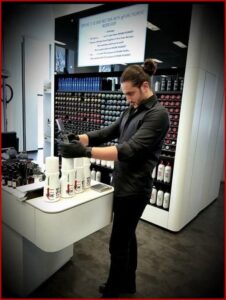 big. We are neighbors, one of whom lives in the West and the other in the East. Our countries have been connected for centuries, but that doesn’t mean there aren’t differences and prejudices, from both sides. The key lies in education and communication. That is what I am also fully committed to. Being open to each other and asking questions. I have enormous respect and appreciation for the Dutch. They are open, curious and enterprising. But they are also individualistic and too much on the clock. Romanians are passionate, have high emotional intelligence and are very creative. They live much more in the moment, without worrying about the (distant) future. We can learn a lot from each other.” How he puts that into practice?
big. We are neighbors, one of whom lives in the West and the other in the East. Our countries have been connected for centuries, but that doesn’t mean there aren’t differences and prejudices, from both sides. The key lies in education and communication. That is what I am also fully committed to. Being open to each other and asking questions. I have enormous respect and appreciation for the Dutch. They are open, curious and enterprising. But they are also individualistic and too much on the clock. Romanians are passionate, have high emotional intelligence and are very creative. They live much more in the moment, without worrying about the (distant) future. We can learn a lot from each other.” How he puts that into practice?
Alex: “I always try to be curious and adapt to the people I am dealing with at the time. My cosmopolitan, international clients in Amsterdam South have high demands and want constant improvement and innovation. With them I work at a different pace, with different products and in a different way than with the more conservative clients in Craiova. And in between, I try to increase mutual understanding. As a professional, I also give seminars focusing on the topic of customer communication. When I don’t use the right pitch in these, I get feedback on that and I learn from that as well. In my personal life, I am also searching for balance. On the one hand, I want to live in the moment and enjoy carefree. Even if that means taking my son out for a late dinner, for example. On the other hand, there is also a need for rest and regularity, which we consciously try to alternate. I always say: when we combine the strengths of our cultures, something fantastic really emerges.” I think it is very valuable to offer different perspectives on the relationship, differences and similarities between the Netherlands and Romania. In the coming months, we will feature more striking personalities from the Dutch/Belgian community in Craiova, in the hope and belief that this will provide deepening insights and, as mentioned above, make the virtual distance the reader experiences from Romania a little smaller.
Banking and insurance sector
ING has continued confidence in Romania
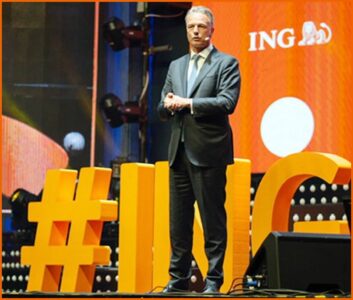 Steven van Rijswijk, CEO of ING Global: We will continue to invest in Romania because the market and the economy still have growth potential. We are confident in Romania and in the business we are doing here, even if there are now more uncertainties regarding the global geopolitical implications, the election results and the double deficit situation
Steven van Rijswijk, CEO of ING Global: We will continue to invest in Romania because the market and the economy still have growth potential. We are confident in Romania and in the business we are doing here, even if there are now more uncertainties regarding the global geopolitical implications, the election results and the double deficit situation
Steven van Rijswijk, ING Global CEO: We are confident in Romania and in the business we are doing here, even if there are now more uncertainties regarding the global geopolitical implications, the election results and the double deficit situation facing Romania. We have confidence in Romania and in the business we are doing here, even though there are now more uncertainties regarding the global geopolitical implications, the election results and the situation regarding the double deficits facing Romania. However, Romania remains an important investment market because of its highly skilled workforce, especially in the IT sector, its diversity of resources, with an emphasis on the green energy sector, its excellent digital infrastructure and a competitive and healthy private market.”
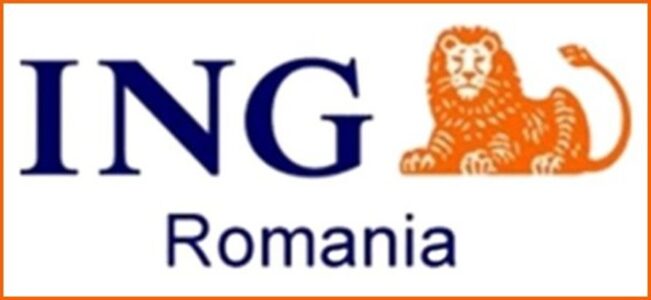
Steven van Rijswijk was in Bucharest early this week to commemorate, together with the bank’s customers, the 30th anniversary of the Dutch ING Group’s presence on the Romanian banking market. He discussed ING’s involvement in the Romanian economy: “One million houses were financed by ING, one in three card transactions is settled through ING, one in five employees has its salary with ING, one in ten companies is a customer of ING, one out of five large companies are customers of ING, last year 28% of Romanian sovereign debt was financed or intermediated by ING, and so far this year ING has intermediated 13.8 billion euros worth of foreign exchange transactions.
Romania meets the conditions for visa lifting by the US.
Romania is one of the last EU countries not included in the U.S. Visa Waiver program. But this month, Romania’s ambassador to the U.S., Andrei Muraru, announced that Romania has met the last condition to be part of the Visa Waiver program. This involves travel for Romanian citizens to travel to the United States for a period less than 90 days. This would no longer require a visa. The Ambassador stated that Romanians will most likely be able to travel to the U.S. without a visa in the first half of next year.
 According to the assessment of the Romanian Embassy in the U.S., Romania met the last criterion to gain access to the Visa Waiver Program: the visa rejection rate for the U.S. dropped below 3%. “With this, Romania formally meets all the technical conditions to be part of the Visa Waiver Program,” said Romanian Ambassador to the US. Andrej Muraru. “Of course, we are waiting for confirmation from the U.S. partners in the coming period, but our assessment, based on the number of visa applications this year and the strong downward trend in recent years, is that the rejection rate has dropped below the 3% threshold. Thus, the first Romanians will likely be able to travel visa-free to the United States in the first half of next year. “Visa-free travel to America is not just a privileged status granted to a country. It brings important benefits. Easier travel will stimulate trade and investment. We also expect more direct flights between Romania and America soon,” Andrei Muraru said. There are still a few steps to take before this happens, however. After the U.S. authorities confirm the drop in the visa refusal rate for Romanians to below 3%, the U.S. State Department informs the Department of Homeland Security, which makes its own consideration. The decision will then be submitted to Congress for a vote. In July 2024, Romanian government launched a campaign called “Qualify Romania in the Visa Waiver Program,” urging those who already had visas to renew them to reach the threshold. Other steps were also taken. “For the success of the project, it is essential that as many Romanian citizens as possible renew their U.S. visas by Sept. 30, 2024.” Now, after the official confirmation that Romania officially meets all conditions, it will take a few more months for the program to be implemented.
According to the assessment of the Romanian Embassy in the U.S., Romania met the last criterion to gain access to the Visa Waiver Program: the visa rejection rate for the U.S. dropped below 3%. “With this, Romania formally meets all the technical conditions to be part of the Visa Waiver Program,” said Romanian Ambassador to the US. Andrej Muraru. “Of course, we are waiting for confirmation from the U.S. partners in the coming period, but our assessment, based on the number of visa applications this year and the strong downward trend in recent years, is that the rejection rate has dropped below the 3% threshold. Thus, the first Romanians will likely be able to travel visa-free to the United States in the first half of next year. “Visa-free travel to America is not just a privileged status granted to a country. It brings important benefits. Easier travel will stimulate trade and investment. We also expect more direct flights between Romania and America soon,” Andrei Muraru said. There are still a few steps to take before this happens, however. After the U.S. authorities confirm the drop in the visa refusal rate for Romanians to below 3%, the U.S. State Department informs the Department of Homeland Security, which makes its own consideration. The decision will then be submitted to Congress for a vote. In July 2024, Romanian government launched a campaign called “Qualify Romania in the Visa Waiver Program,” urging those who already had visas to renew them to reach the threshold. Other steps were also taken. “For the success of the project, it is essential that as many Romanian citizens as possible renew their U.S. visas by Sept. 30, 2024.” Now, after the official confirmation that Romania officially meets all conditions, it will take a few more months for the program to be implemented.
Free internet in Romania and all over Europe
What you need to do to connect?
 Cities in the European Union, including those in Romania, have created wireless Internet networks with free access in parks, squares and other public spaces since 2018. Now the EU has launched an application that facilitates access to free and fast WiFi in public spaces, the European Commission’s representation in Romania announced. The WiFi4EU app allows users to quickly find available hotspots nearby and access a network of more than 93,000 hotspots across Europe, including Iceland, Britain and Liechtenstein, with a private online experience without tracking or data collection. After the app is downloaded and opened, nearby WiFi4EU hotspots are automatically displayed and can be connected to. You can then find the Wi-Fi hotspots on your mobile device. You can download the app (available for iOS and Android) at this link. The WiFi4EU initiative was officially launched by the European Commission in 2018 as part of a broad effort to reduce the digital divide between citizens in different regions of the European Union. The main goal of this program is to provide free access to high-speed Internet in the public spaces of cities and towns across Europe, including less developed or isolated areas where Internet access is not so easy. The total budget allocated for WiFi4EU was approximately €120 million for the period 2018-2020, with the goal of installing free Wi-Fi hotspots in at least 8,000 European communities by the end of the program .
Cities in the European Union, including those in Romania, have created wireless Internet networks with free access in parks, squares and other public spaces since 2018. Now the EU has launched an application that facilitates access to free and fast WiFi in public spaces, the European Commission’s representation in Romania announced. The WiFi4EU app allows users to quickly find available hotspots nearby and access a network of more than 93,000 hotspots across Europe, including Iceland, Britain and Liechtenstein, with a private online experience without tracking or data collection. After the app is downloaded and opened, nearby WiFi4EU hotspots are automatically displayed and can be connected to. You can then find the Wi-Fi hotspots on your mobile device. You can download the app (available for iOS and Android) at this link. The WiFi4EU initiative was officially launched by the European Commission in 2018 as part of a broad effort to reduce the digital divide between citizens in different regions of the European Union. The main goal of this program is to provide free access to high-speed Internet in the public spaces of cities and towns across Europe, including less developed or isolated areas where Internet access is not so easy. The total budget allocated for WiFi4EU was approximately €120 million for the period 2018-2020, with the goal of installing free Wi-Fi hotspots in at least 8,000 European communities by the end of the program .
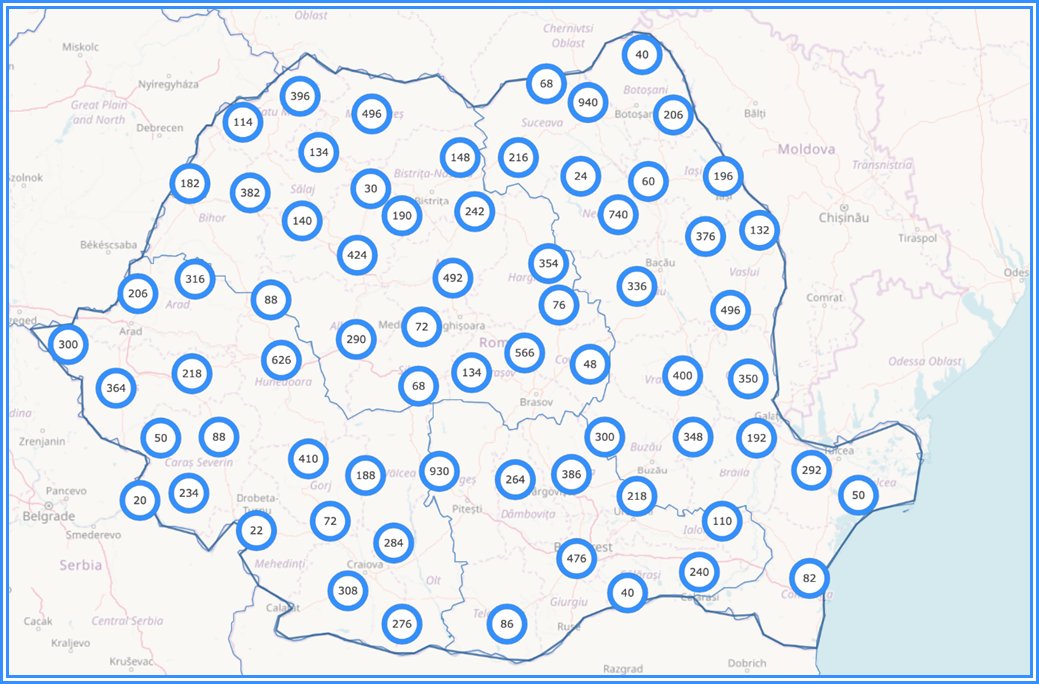
Romania was one of the main beneficiaries of the WiFi4EU program, with many local governments receiving funding to deploy Wi-Fi access points in public areas. In total, Romania has 8,000 free public hotspots, both in cities and rural areas. Among the localities that received funding are:
- City Hall of Brașov- installed free Wi-Fi access points in public areas, such as city squares and parks.
- City Hall of Cluj-Napoca-oneof the cities that rapidly implemented access points, connecting markets and cultural institutions to the WiFi4EU network.
- City Hall of Baia Mare- used the money to provide free Internet access in various tourist areas and public spaces.
- Sibiu City Hall-installed access points in the tourist areas of the old city center.
- City Hall of Oradea-implementedthe project in the main parks and public squares.
- City Hall of Constanța-installed hotspots on the coast and in the casino area
Moldova receives 1.8 billion euros from EU
The visit of the head of the European Commission to the Republic of Moldova and the announcement of the new aid measures for Chisinau came ten days before the first round of presidential elections, 420 Million Euros out of the total aid of 1.8 Billion Euros announced by the President of the European Commission, Ursula von der Leyen, in Chisinau, are non-refundable grants, while the rest are loans, said the Deputy Prime Minister for European Integration. , Cristina Gherasimov, quoted by Radiomoldova.md. The funds will be allocated gradually over the next three years, depending on the implementation of the measures stipulated in the Growth Plan for the Republic of Moldova, which is to be finalized by the end of this year.
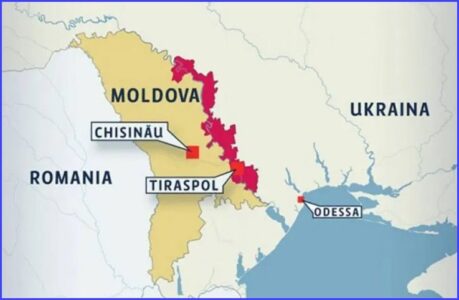 “The €1.8 billion aid consists of a large, significant grant component and a significant loan component. The loans will be offered at an extremely advantageous rate for the Republic of Moldova, which will help us repay the loan from the economic growth we will see in the coming years.” Ursula von de Leyen announced a series of measures to support Chisinau. “We will invest 1.8 billion euros in your economy over the next three years, and we will focus these investments in areas that will generate economic growth. We already have many more projects. We are going to build two new hospitals in Balti and Cahul (…). We support reform efforts to modernize the economy,” she said, according to the newspaper Ziarul de Gardă . The President of the European Commission also spoke of the Chisinau government’s reforms. “Moldova has made remarkable progress, managing to launch important reforms of the judicial system, while also stepping up the fight against corruption and working hard to eliminate oligarchs from the economy and society,” Von der Leyen said. Maia Sandu thanked the EU for the assistance received in recent years and stressed the close trade relations between the Republic of Moldova and the EU bloc. “The visit underlines the increasingly close relations between Chisinau and Brussels,” the Moldovan presidency said. Maia Sandu ran for a second presidential term in elections (and has since won them) that took place in parallel with a referendum on enshrining EU accession as a “strategic objective” in the constitution. Sandu, who strongly condemned Russia’s invasion of neighboring Ukraine, led Moldova’s efforts to become an EU member and hopes to achieve that goal by 2030, Reuters writes. The Republic of Moldova began official accession negotiations in June, which are expected to be long and difficult. Polls already showed that Sandu was the favorite to win the election and had a comfortable lead over the other 10 candidates. Polls also showed that the majority of Moldovans support joining the European Union. Moldova’s relations with Russia have deteriorated in recent years. The pro-Western government in Chisinau has accused Moscow of seeking its overthrow and interfering in its internal affairs. On the other hand, Moscow accused Sandu and her team of fomenting “Russophobia. The authorities in Chisinau have repeatedly accused Russia of interfering in the elections, which Moscow denies. The European Parliament has also issued a warning to Russia in this regard. On Wednesday, Oct. 9, MEPs adopted a resolution strongly warning against Russia’s continued attempts to derail the Republic of Moldova’s European trajectory, according to an official statement .
“The €1.8 billion aid consists of a large, significant grant component and a significant loan component. The loans will be offered at an extremely advantageous rate for the Republic of Moldova, which will help us repay the loan from the economic growth we will see in the coming years.” Ursula von de Leyen announced a series of measures to support Chisinau. “We will invest 1.8 billion euros in your economy over the next three years, and we will focus these investments in areas that will generate economic growth. We already have many more projects. We are going to build two new hospitals in Balti and Cahul (…). We support reform efforts to modernize the economy,” she said, according to the newspaper Ziarul de Gardă . The President of the European Commission also spoke of the Chisinau government’s reforms. “Moldova has made remarkable progress, managing to launch important reforms of the judicial system, while also stepping up the fight against corruption and working hard to eliminate oligarchs from the economy and society,” Von der Leyen said. Maia Sandu thanked the EU for the assistance received in recent years and stressed the close trade relations between the Republic of Moldova and the EU bloc. “The visit underlines the increasingly close relations between Chisinau and Brussels,” the Moldovan presidency said. Maia Sandu ran for a second presidential term in elections (and has since won them) that took place in parallel with a referendum on enshrining EU accession as a “strategic objective” in the constitution. Sandu, who strongly condemned Russia’s invasion of neighboring Ukraine, led Moldova’s efforts to become an EU member and hopes to achieve that goal by 2030, Reuters writes. The Republic of Moldova began official accession negotiations in June, which are expected to be long and difficult. Polls already showed that Sandu was the favorite to win the election and had a comfortable lead over the other 10 candidates. Polls also showed that the majority of Moldovans support joining the European Union. Moldova’s relations with Russia have deteriorated in recent years. The pro-Western government in Chisinau has accused Moscow of seeking its overthrow and interfering in its internal affairs. On the other hand, Moscow accused Sandu and her team of fomenting “Russophobia. The authorities in Chisinau have repeatedly accused Russia of interfering in the elections, which Moscow denies. The European Parliament has also issued a warning to Russia in this regard. On Wednesday, Oct. 9, MEPs adopted a resolution strongly warning against Russia’s continued attempts to derail the Republic of Moldova’s European trajectory, according to an official statement .
The resolution, passed with 508 votes in favor, 53 against and 104 abstentions, strongly condemns Russian attempts at interference and hybrid operations, which have become more aggressive on the eve of the presidential election and constitutional referendum in the Republic of Moldova, election polls taking place Oct. 20. On Oct. 3, 2024, Moldovan authorities uncovered a large-scale electoral fraud funded by fugitive oligarch Ilan Sor, who transferred $15 million to 130,000 Moldovans as part of an electoral bribery operation. The European Parliament condemns these actions and calls on Russia to respect the independence of the Republic of Moldova, stop the destabilization and withdraw its forces from the country’s territory. Moreover, it reiterates earlier calls for the destruction of all ammunition stored in the Cobasna municipality, located in the Transnistrian region.
Disclaimer

The newsletter of the Dutch Romanian Network is compiled with great care. The Dutch Romanian Network cannot accept any liability for a possible inaccuracy and/or incompleteness of the information provided herein, nor can any rights be derived from the content of the newsletter. The articles do not necessarily reflect the opinion of the board.
